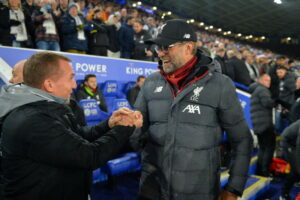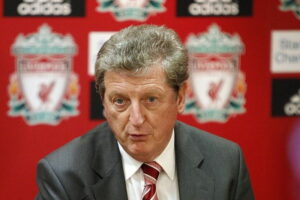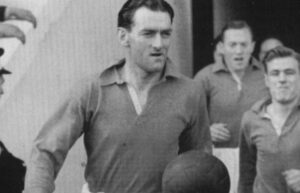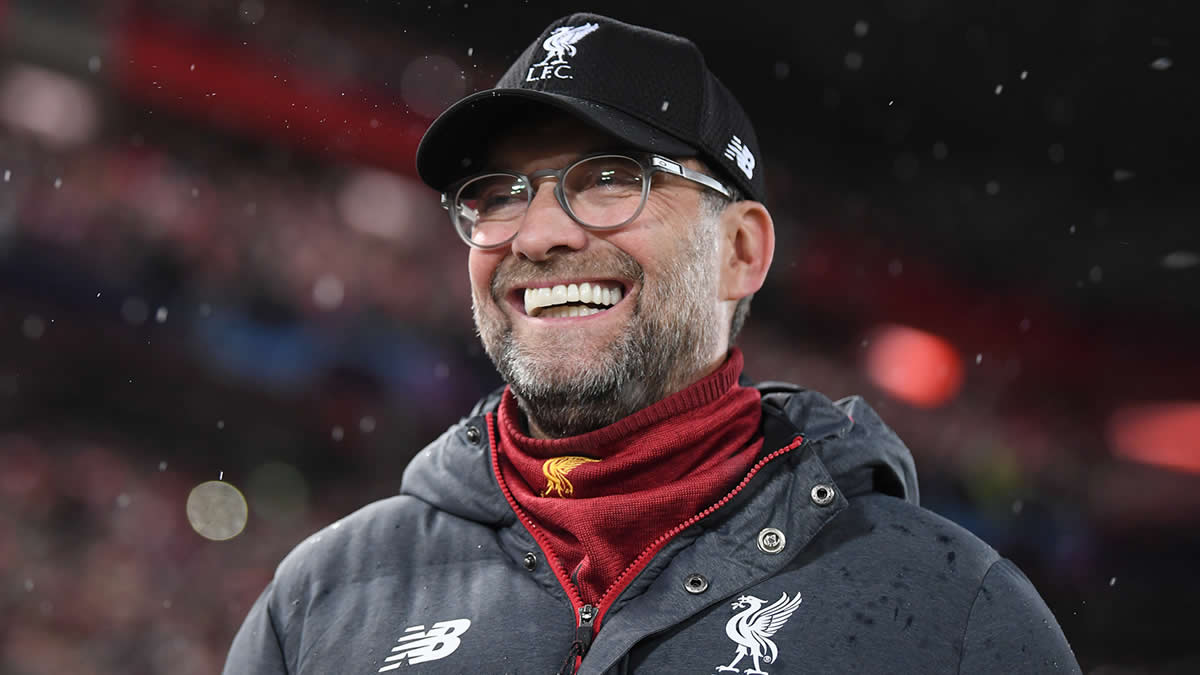
There are some people that do not and will never understand certain football clubs. For proof of the pudding on that front, have a read about our page on Roy Hodgson. Conversely, there are some managers who very much do get the clubs that they work at. Pep Guardiola, for example, is an arrogant and egotistical person who cares little for the rules of the game and needs to spend vast sums of money in order to achieve success, so he fitted in perfectly at Manchester City.
In that regard, Liverpool supporters have been extremely lucky. Bill Shankly is the man that started it all, but there have been others since.
Jurgen Klopp on hearing Sven-Goran Eriksson, who has pancreatic cancer, always dreamed of being Liverpool manager. “He’s very welcome to come here and he can sit in my seat in my office and do my job for a day if he wants.
“He can come and have a few wonderful hours I’m sure.”— paul joyce (@_pauljoyce) January 19, 2024
In our Liverpool Legends series you can read all about the likes of Bob Paisley and Kenny Dalglish, as an example, the pair of whom very much understood what it was that the Scot had built and how to carry that on. In the case of Paisley, he worked with Shankly, so it’s hardly a surprise that he ‘got it’.
Dalglish, meanwhile, was a fellow Scot, learning the ins and outs of life at Anfield and becoming an ingrained part of the club. When it comes to Jürgen Klopp, though, he never met Shankly and will struggle to understand anyone with a Scottish accent, yet there is no question that he very much understands the Liverpool way.
The Early Years
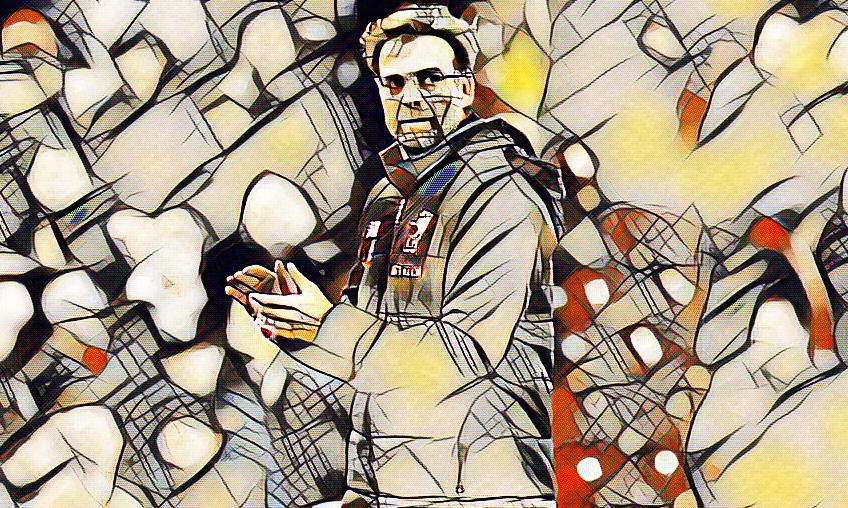
Jürgen Norbert Klopp was born in Stuttgart, West Germany on the 16th of June 1967. His father, Norbert Klopp, was a travelling salesman, having played as a goalkeeper during his footballing days. Growing up in the countryside of the Black Forest with two older sisters, Jürgen was a junior player at SV Glatten and then TuS Ergenzingen, whilst his father encouraged him to take part in any number of other sports.
He played for 1. FC Pforzheim for a time, then moved through three clubs based in Frankfurt during his adolescent years: Eintracht Frankfurt II, Viktoria Sindlingen and Rot-Weiss Frankfurt. This was in spite of the fact that he wanted to be a doctor.
Jurgen Klopp in his playing days at Mainz pic.twitter.com/Dpdy4fBm6b
— LFC Fans Corner (@LFCFansCorner) January 15, 2016
He was never academic enough to pursue a career in medicine, with his headmaster reportedly saying to him, “I hope it works out with football, otherwise it’s not looking too good for you.” He worked several part-time jobs during the early years of his playing career, doing the likes of loading heavy goods for transport and working in a video rental store.
He attended Goethe University Frankfurt whilst also playing for Frankfurt’s reserves, also managing the Frankfurt D-Juniors side alongside that. He would later say that he was a somewhat limited footballer, which might help to explain why his management career started relatively early.
Mainz
In the summer of 1990, Jürgen Klopp was signed by Mainz 05 as a striker. He would go on to spend most of his professional career working for the club, remaining there as a player for 11 years. Although he maybe wasn’t the most talented footballer ever to grace the field, he had a good attitude and a strong commitment to succeed that made him a firm favourite with supporters.
He was a striker originally, but in 1995 he was converted into a defender, with the combination of his height and his willing to commit himself to challenges making him good at the role. That was also the year that he gained a diploma in Sports Science from Goethe University.
Mainz banner : “for us it was clear all the time, now it is official: Jurgen Klopp is the best of the world.” pic.twitter.com/YpkDHOHBsv
— LFC KNOWLEDGE (@LFCknowledge) October 3, 2019
It was clear that Klopp’s talent in the world of football lay not so much in the playing side of it as as a coach. He once said, “I had fourth-division feet and a first-division head.” When he was on trial at Eintracht Frankfurt he played with Andreas Möller and remembered thinking, “If that’s football, I’m playing a completely different game. He was world-class. I was not even class.”
He would follow the methods of there managers that he worked under and made regular trips to Cologne in order to obtain his Football Coaching Licence whilst studying under Erich Rutemöller. When he hung up his boots, he retired as Mainz’s record goal scorer, netting 56 times.
Mving Into Coaching
In the wake of his retirement as a player, Jürgen Klopp was asked to take over from Eckhard Krautzun, who had been dismissed as the manager. He took over on the 27th of February 2001, with his first match in charge being a 1-0 win over MSV Duisburg. He won six out of the seven games that he was in charge of over the course of the rest of the season, saving the club from relegation and winning the confidence of both his teammates and the Mainz supporters.
In his first full season in the role, Klopp implemented the pressing and counter-pressing tactics that he would become known for, seeing Mainz finish 4th in the Bundesliga 2. They repeated the trick a year later, then finished third in the 2003-2004 season and getting them promoted to the Bundesliga.
Jurgen Klopp used to babysit Mats Hummels when Klopp was a Mainz player and Hummels' dad was the coach. Starting the scouting early #mmlove pic.twitter.com/A5rKBKMpFV
— Mario Melchiot (@MarioMelchiot) August 29, 2017
If proof were needed about the quality of Jürgen Klopp as a manager, perhaps it can be seen in the fact that he managed to get Mainz to finish 11th in their first season in the top-flight, in spite of the fact that the club had both the smallest stadium and the smallest budget in the entire division. They finished 11th again. The following year, but were relegated at the end of the 2006-2007 campaign, with Klopp remaining at Mainz but resigning when he failed to get them promoted at the end of the 2007-2008 season.
His time at Mainz ended with the club having won 109 games, drawing 78 and losing 83 times, with one of Germany’s bigger boys coming calling.
Borussia Dortmund
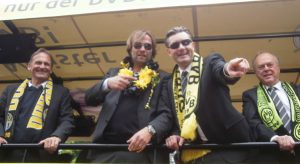 The success that Klopp had enjoyed at Mainz meant that other clubs were starting to pay attention to him. There was interest from the champions of Germany, Bayern Munich, but the German instead decided to take over as the manager of Borussia Dortmund, who had finished 13th at the end of the 2007-2008 campaign.
The success that Klopp had enjoyed at Mainz meant that other clubs were starting to pay attention to him. There was interest from the champions of Germany, Bayern Munich, but the German instead decided to take over as the manager of Borussia Dortmund, who had finished 13th at the end of the 2007-2008 campaign.
His first match in charge was a 3-1 win away from home in the DFB-Pokal, winning his first trophy by defeating Bayern in order to secure the German Supercup. That was a signal of things to come, with Dortmund finishing sixth in his first season and then fifth the season after, even though Dortmund’s was one of the youngest squads in the division.
Jurgen Klopp on his future:
“It’s very, very unlikely that I will still be sitting on the bench when I am 60. And, if at the end of my career I only got to coach Mainz, Dortmund and Liverpool, then it will certainly have been three fantastic clubs.” pic.twitter.com/9nydpgLe3V
— David McGrady (@Djmc76) January 6, 2023
The 2010-2011 season began with a 2-0 defeat, but the side won 14 of its next 15 games and sat on the top of the Bundesliga for Christmas. On the 30th of April 2011, Borussia Dortmund defeated 1. FC Nürnberg 2-0 at home in order to secure the club’s seventh top-flight title and end the Bayern Munich dominance.
The club defended its title the following season, setting a record by winning 47 points in the second-half of the season and also earning the greatest points total in the German league’s history at the end of the campaign with 87 points. When they beat Bayern Munich 5-2 in the DFB-Pokal final, it secured the club’s first ever domestic double.
Jurgen Klopp took charge of Dortmund for the last time on this day in 2015 🟡 ⚫️ pic.twitter.com/5wU5SE9mDl
— GOAL (@goal) May 30, 2022
In the 2012-2013 season, Klopp decided to focus on the Champions League after a disappointing run in the competition the year before. Though the league form suffered, the club made it out of the ‘Group of Death’ that also featured Manchester City, Real Madrid and Ajax, needed to defeat Real Madrid again in the semi-final to book a place in the final against Bayern Munich.
That match pitted Klopp against the man who would become his nemesis in many way, Pep Guardiola. Munich won 2-1 thanks to an 89th minute goal from Arjen Robben, whilst it was also the last time that Mario Götze played for the club before moving to their rivals.
Jurgen Klopp's farewell to Dortmund was emotional 🥺
(via @Bundesliga_EN) pic.twitter.com/4FUJdSMSZ4
— ESPN FC (@ESPNFC) November 9, 2021
It is commonplace for Bayern Munich to take the best players of the other sides in Germany, which also happened at the end of the following season. Dortmund had finished second, with Robert Lewandowski confirming that he would be leaving to join Bayern at the end of the campaign.
They won the DFL Supercup, which was the competition that they also won at the start of the following season. In April 2015, Klopp announced that he would be leaving Borussia Dortmund at the end of the campaign after a disappointing season. By the time he left the club he did so having overseen 180 wins, 69 draws and 70 losses.
Arriving at Liverpool
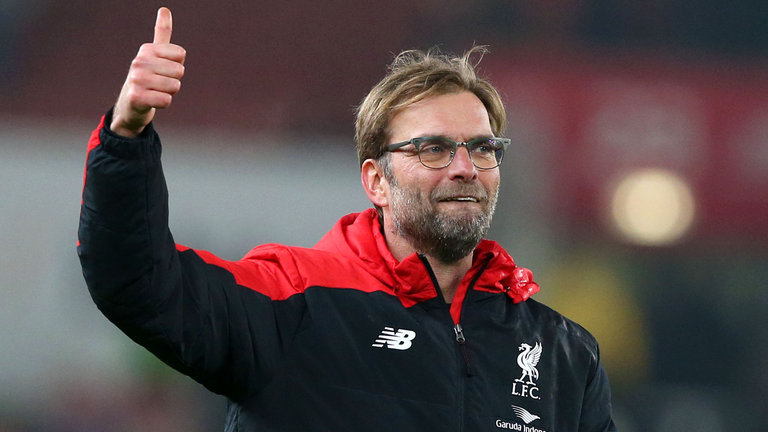
The disappointment of Brendan Rodgers’ time at Anfield was such that many people thought that he’d be let go at the end of the 2014-2015 season. Instead, he was allowed to limp on into the following campaign, eventually being sacked in the October after a 1-1 draw with Everton. Although the fit of Jürgen Klopp and Liverpool seems obvious now, it wasn’t a lock for John Henry and his colleagues at Fenway Sports Group initially.
The manager was interviewed alongside other people, including Roberto Martinez, but on the eighth of October 2015 he signed a three-year deal to replace the Northern Irishman in the Anfield hot seat.
Jurgen Klopp's agent says the former Borussia Dortmund coach would be open to a move to an 'exciting' Premier League club.
— Pete O'Rourke (@SportsPeteO) June 9, 2015
In his debut press conference, Klopp was asked what he would call himself, given the fact that José Mourinho was the self-entitled ‘Special One’. He replied that he would be the ‘Normal One’, telling the club’s supporters that he wanted them to turn ‘from doubters to believers’.
The two phrases perfectly encapsulated the manner in which the manager would go about his business at Liverpool, with supporters seeing the impact of his coaching in his first match. It was a game against Tottenham Hotspur, with Adam Lallana collapsing into the manager’s arms upon being substituted, having put so much into his performance.
Tasting Success
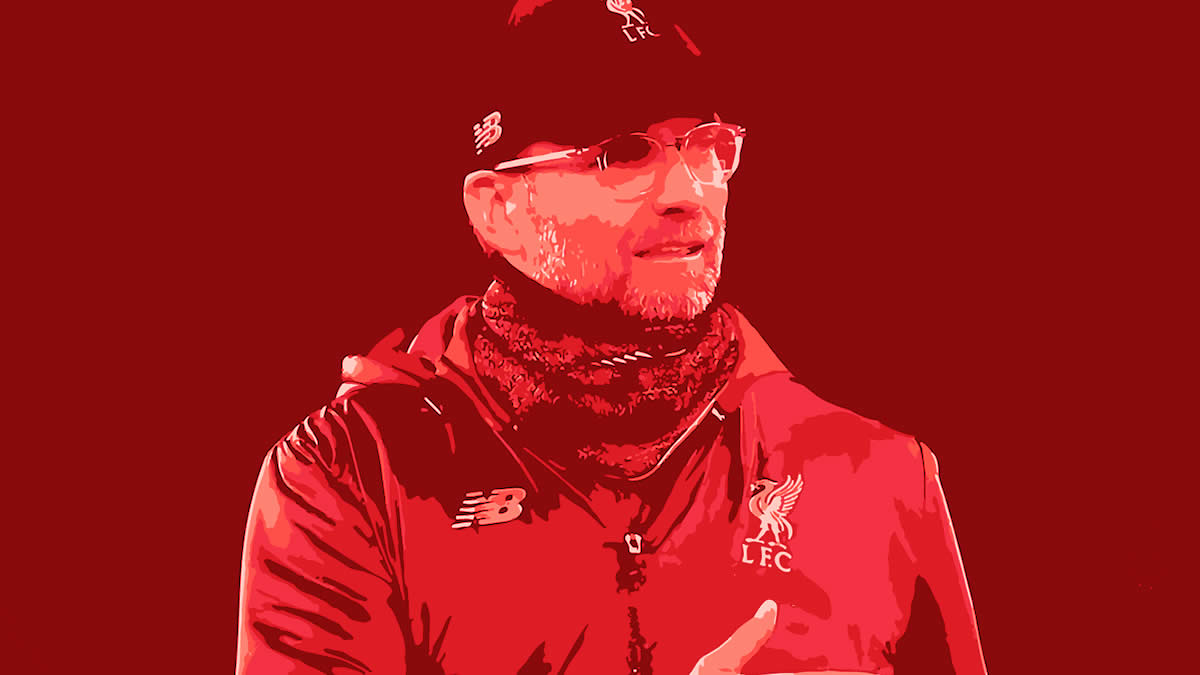
Jürgen Klopp’s first few months in charge of Liverpool saw the Reds get extremely close to enjoying immediate success. The club made the final of the League Cup, which they lost on penalties to Manchester City, as well as the final of the Europa League, having knocked out both Klopp’s former club Borussia Dortmund and our rivals Manchester United on the way.
In the end, Sevilla defeated Liverpool 3-1 in order to win the trophy, but it was a sign of just what we could achieve under the manager. In fact, such was the overwhelming feeling of positivity around the club that he and his coaching stage signed six-year extensions to their contracts on the eight of July.
🗓 Six years ago today, one of Anfield's great European nights…
Liverpool 4-3 Dortmund 🔥pic.twitter.com/DKkh7uSdM2
— The Anfield Wrap (@TheAnfieldWrap) April 14, 2022
At the end of the 2016-2017 season, Liverpool qualified for the Champions League thanks to a 3-0 win over Middlesbrough at Anfield. The club would go on to make the final of the competition at the end of the following season, having also finished fourth in the Premier League in order to ensure their participation in it for the following campaign.
Sadly that final would also end in defeat, this time to Real Madrid, with some rival fans suggesting that Klopp was something of a specialist in failure. That was an idea that would soon be made to look as stupid as it was, with another journey to the Champions League final coming in 2018-2019.
Liverpool 4-0 Barcelona. The greatest night ever at Anfield 👏
What happened during the game, what Jurgen Klopp said before kick off and what it's like playing at Anfield on those nights… 🔴@JamesMilner talks to @JeffStelling about a truly extraordinary 90 minutes of… pic.twitter.com/bW8fuDGq89
— Football's Greatest Pod (@ftblsgreatest) January 23, 2024
On a domestic front, Liverpool had pushed Manchester City all the way. It looked as if the club was going to end up empty-handed, however, when Vincent Kompany scored a once-in-a-lifetime goal against Leicester City in the league and the Reds lost 3-0 away to Barcelona in the first-leg of the Champions League semi-final.
With both Mohamed Salah and Roberto Firmino absent with injuries, it looked like an impossible task to progress. Impossible tasks seem to be what the manager specialises in, however, and the Reds defeated their Spanish opponents 4-0 in order to progress to the final, where they defeated Tottenham Hotspur 2-0 in order to win the club’s sixth European Cup.
Winning the Premier League
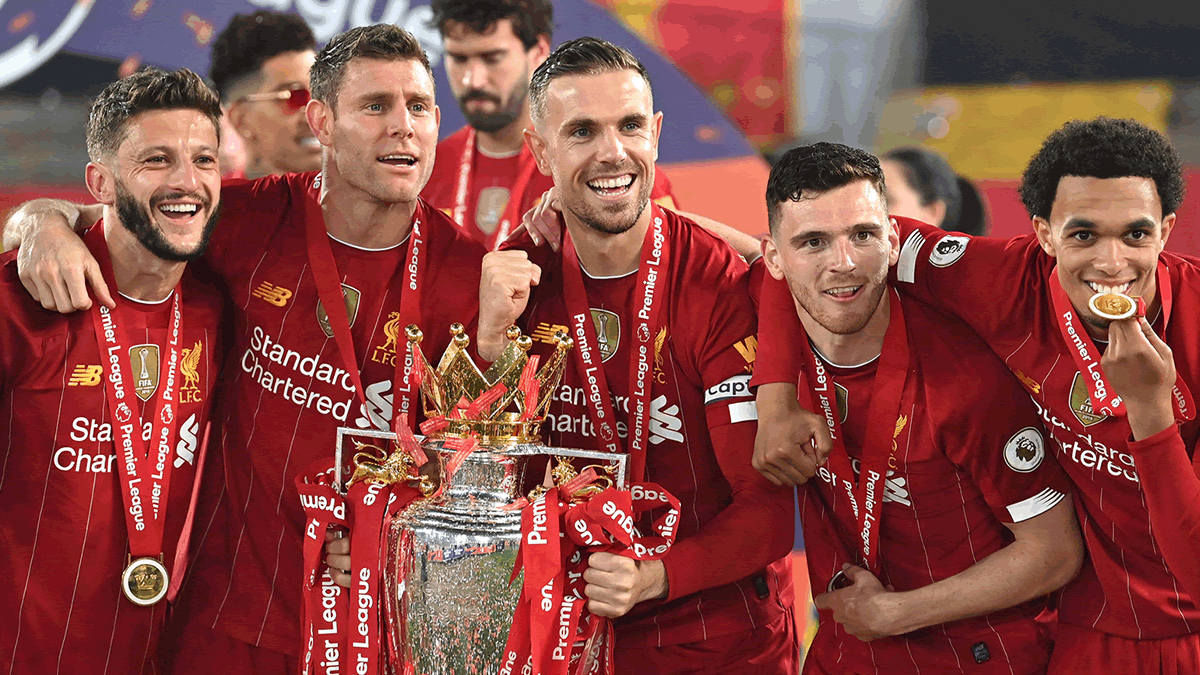
There is no question that winning the Champions League in 2018-2019 was an incredible achievement, but for the majority of fans there was one trophy that they craved more than any other: the Premier League title. Liverpool had won the top-flight 18 times, but had never won it after the re-branding to the Premier League in 1992.
During that time, Manchester United had overtaken Liverpool’s domestic title success, so there was a desperate desire to win the title. When the club missed out on 97 points at the end of the 2018-2019 season, it felt as if it would never happen. Jürgen Klopp had other ideas, however.
ON THIS DAY: In 2015, Jurgen Klopp was appointed Liverpool manager.
🏆 Champions League
🏆 UEFA Super Cup
🏆 Club World Cup
🏆 Premier LeagueHe would become the first manager in Liverpool's history to lift the Premier League and Champions League. pic.twitter.com/QrdUu2Sq4A
— Squawka (@Squawka) October 8, 2021
Liverpool were sensational in the 2019-2020 season, adding the Super Cup and the FIFA Club World Cup to the trophy cabinet and taking a 22-point lead in the Premier League, which was the biggest ever gap between first and second place in the history of the English top-flight.
Although the season would be interrupted by the global health crisis of the time, the number of points that Liverpool had got on the board by the time of the break in the season were enough to win the league, even if Liverpool didn’t play another game and all of the ones played by Manchester City were allowed to count. The Premier League title was ours.
Further Success
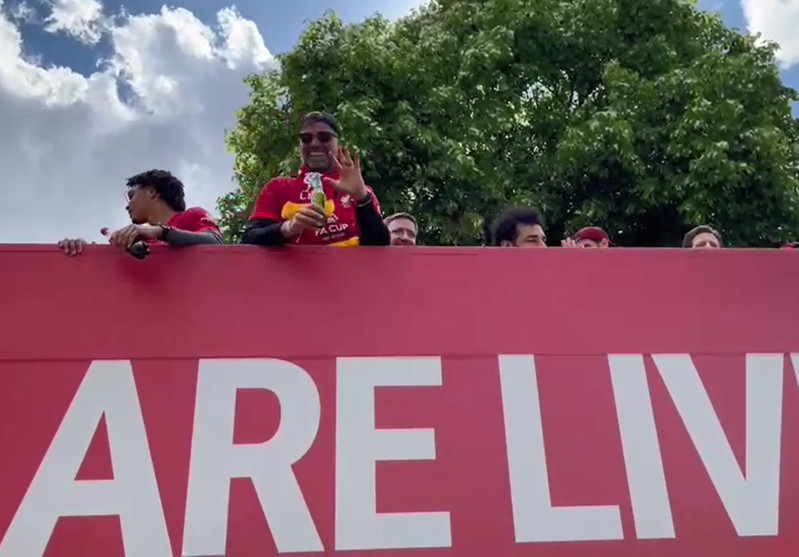
Despite struggling in the 2020-2021 season, largely because games had to be played behind-closed-doors for the majority of the campaign, Liverpool still finished third and qualified for the following season’s Champions League.
The 2021-2022 season would prove to be a record-breaking one, with a 5-0 win at Old Trafford against Manchester United and a 4-1 win over Everton at Goodison Park contributing to the first time in the history of the English top-flight that a club had scored at least two away games in 18 successive games in all competitions. A 2-1 win against Inter Milan in the Champions League made it the first time an English club had won all six games in the group stage.
Incredible scenes in Liverpool for the trophy parade 🔴 pic.twitter.com/KrqxwcrxA5
— OLSC Lebanon (@LFCLebanon) May 29, 2022
The season would have both success and disappointment attached to it. Domestically, the manager won the League Cup for the first time in his Liverpool career thanks to an 11-10 win over Thomas Tuchel’s Chelsea, then he also won the FA Cup against the same manager, this time thanks to a 6-5 penalty shootout win. It was to be another one-point loss of the Premier League title to Pep Guardiola’s Manchester City, however, in spite of the fact that the club had 115 charges against it for breaking the league’s rules.
A dangerous crush outside the stadium ahead of the Champions League final meant that few people were bothered about the 1-0 loss to Real Madrid, instead being grateful to escape with their lives.
The Leaving of Liverpool
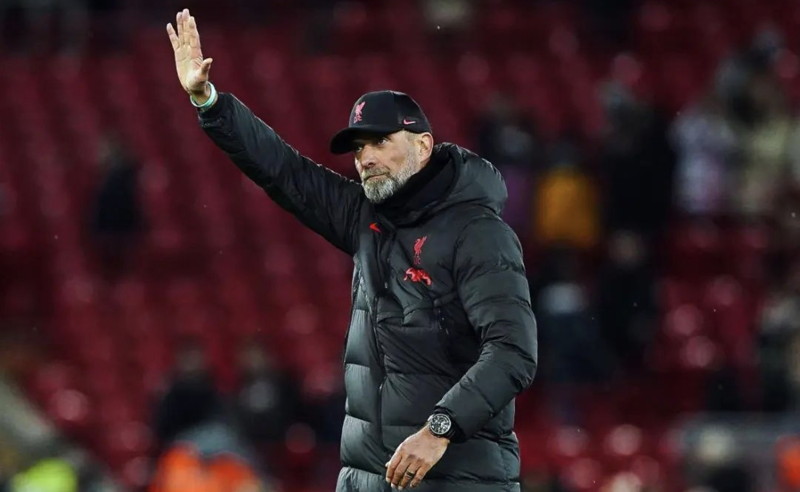
For the older generation of Liverpool fans, the moment that Bill Shankly announced his retirement from Liverpool completely out of the blue knocked them for six. There were videos of supporters in Liverpool being given the news and appearing completely devastated to hear it. In the January of 2023, Jürgen Klopp confirmed via a video message posted to the club’s social media that he would be standing down at the end of the season.
The reactions were much the same, only they were shared by YouTubers, Vloggers and podcast hosts. The news that Jürgen would be leaving left many in complete and utter shock.
Disbelief and shock on the streets of Liverpool when Shankly announced he was leaving. I can relate. pic.twitter.com/Q7zVYgsUgN
— Red (@TaintlessRed) January 26, 2024
It might seem like an exaggeration, but the German had dragged Liverpool up from being constant ‘also rans’ to being one of the best teams in the country. If not for the sports-washing of Manchester City, who the Premier League felt broke rules to achieve what they did, Klopp would’ve won three league titles rather than just the one.
He made Liverpool relevant again and many supporters felt that there was no way to come back from his departure. At a time when the likes of Newcastle United had also been bought by a sports-washing nation state, losing Klopp was seen as a body-blow to the club’s hopes of long-term success.
The man himself was, of course, entirely classy about it. He confirmed that he felt like he had to leave because he was running out of energy, but that his final few months at the club should not be about him. He said:
“I love absolutely everything about this club, I love everything about the city, I love everything about our supporters, I love the team, I love the staff. I love everything. But that I still take this decision shows you that I am convinced it is the one I have to take. It is that I am, how can I say it, running out of energy. I have no problem now, obviously, I knew it already for longer that I will have to announce it at one point, but I am absolutely fine now. I know that I cannot do the job again and again and again and again. After the years we had together and after all the time we spent together and after all the things we went through together, the respect grew for you, the love grew for you and the least I owe you is the truth – and that is the truth.”
1 – Jürgen Klopp has the highest win rate of any manager in Liverpool's history in all competitions (60.7%, 50+ games), while he is the only Liverpool manager to win each of the top-flight, European Cup/Champions League, FA Cup, and League Cup with the Reds. Boss. pic.twitter.com/gddqUpEvTM
— OptaJoe (@OptaJoe) January 26, 2024
At the point at which the announcement was made, Liverpool had progressed to the final of the League Cup where they would face Chelsea (which we subsequently won), had drawn Norwich City at home in the FA Cup and were top of the Premier League. They had also made it through to the Round of 16 in the Europa League.
Klopp said, “For me it was super, super, super-important that I can help to bring this team back onto the rails. It was all I was thinking about. When I realised pretty early that happened, it’s a really good team with massive potential and a super age group, super characters and all that, then I could start thinking about myself again.” It’s fair to say he did just that.
Timeline of Jürgen Klopp’s Liverpool Achievements
- League Cup Final Defeat – 2015-2016
- Europa League Final Defeat – 2015-2016
- Champions League Final Defeat – 2017-2018
- Lost Out on Premier Title by 1 Point – 2018-2019
- Champions League Win – 2018-2019
- UEFA Super Cup – 2019
- FIFA Club World Cup – 2019
- Premier League Title – 2019-2020
- League Cup Win – 2021-2022
- FA Cup Win – 2021-2022
- Lost Out on Premier Title by 1 Point – 2021-2022
- Champions League Final Defeat – 2021-2022
- League Cup Win – 2023-2024

